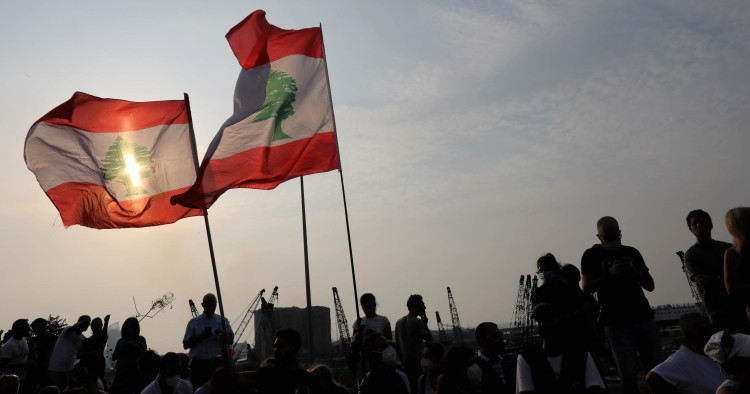Lebanon has been reeling from a financial crisis orchestrated by its political class that has decimated its economy and left more than three-quarters of the population in poverty. Public services are degraded, electricity is provided for less than four hours per day, schools are closed, and the once prosperous health sector is strained as doctors and nurses emigrate abroad in search of better opportunities. Thefts, shootings, bank heists, hostage-taking, and smuggling are all on the rise, imperiling public safety, while security agencies’ capacity to maintain order is eroding. Social implosion is imminent with important spillover risks. Meanwhile, Lebanon’s leaders, who have failed to enact measures to halt the freefall that is nearing its four-year mark, remain deeply divided on the prolonged presidential vacuum and the way forward.
U.S. leadership has been active in offering short-term humanitarian help, but U.S. interests in the stability of Lebanon in its strategic location on the Eastern Mediterranean will be compromised without longer-term attention to the challenges that will determine the country’s viability: from the catastrophic humanitarian and security breakdown, to the destabilizing domestic and regional implications of mounting social and economic tensions and an unsustainable refugee crisis, and the political repercussions of polarization and continued political uncertainty.
The U.S. Congress has pushed the Biden administration to be more decisive in compelling Lebanon’s leaders to take steps to overcome the political paralysis. Reps. Gregory Meeks (D-NY) and Mike McCaul (R-TX) most recently underscored, in a letter to Secretary of State Antony Blinken, the need to “use all authorities,” including targeted sanctions against those impeding progress, to impress upon the political class the urgency of electing a president and undertaking overdue reforms.
The administration is now drawing the line on the kind of government it can work with, insisting on a clean, capable, and independent candidate who can generate political consensus on reform. The International Monetary Fund (IMF) has repeatedly warned about a “never-ending” crisis if the authorities do not accelerate the implementation of conditions that will unlock a $3 billion bailout, even as Lebanon faces an unruly dollarization, disintegrating public services, and dwindling central bank reserves that will eradicate remaining bank deposits. For this, electing a president — and one who can spearhead the swift formation of a government — is essential.
In tandem, at a time when Lebanon risks complete disintegration and national institutions are thoroughly undermined, the expansion of administrative decentralization offers a path forward that should be considered by Lebanon’s leadership as part of any reform scheme. If properly implemented, that is, with accompanying fiscal decentralization that would match prerogatives given to (elected) local bodies with budgets, decentralization could boost local development and citizen participation, offering an alternative to the inaction and corruption plaguing the central government. It would, at a minimum, enable local government to provide essential services to their communities, including solar-powered electricity, water treatment and sanitation services, and education and health services, while introducing more transparency.
Decentralization should nevertheless come hand in hand with the reform of the judiciary, which is in disarray, politicized, and largely unconcerned with accountability. Caught between operational failings and the absence of clear standards and procedures, the judiciary has lost its integrity and independence. An independent, empowered judiciary is particularly important to a beleaguered public that is still seeking justice for the devastating port explosion that killed 218 and destroyed the capital city, but whose perpetrators remain unpunished.
Finally, Lebanon hosts, at around 30% of the population, the largest per capita number of refugees, who are not only doing badly in poverty-stricken and overcrowded camps, but have frayed Lebanon’s already depleted public services untenably. Given the population’s general impoverishment, community-level relations are worsening, and violence between host and refugee communities is rising. The U.S. needs to impress upon the government of Lebanon that it understands the economic, social, and political consequences of the Syrian refugee crisis, and that it will work with it to ensure that the human rights of refugees are respected, while guiding the international community in identifying local and global options to alleviate the destabilizing pressures of refugee influxes in Lebanon.
The vacuum that is being created today by institutional decay and inaction will inevitably be filled by rackets, gangs, political parties, and non-state actors capable of providing livelihood support and safety locally at the expense of the state, with Iran-backed Hezbollah best placed to sustain its supporters. Now, more than ever, the U.S. should use its leverage, including pressure tactics, to underscore its expectation of good governance and accountability while ensuring that Lebanon’s predatory politicians, who are responsible for the country’s decline, do not profit from the status quo and work to elect their next president — one who has the respectability and gravitas to secure agreement on reform and is not beholden to any of Lebanon’s malign foreign patrons.
Edward M. Gabriel is president of the American Task Force on Lebanon, a leadership organization of Americans of Lebanese descent, and former U.S. ambassador to Morocco.
Patricia J. Karam is senior advisor to the American Task Force for Lebanon. She is also a non-resident fellow at Arab Center Washington DC.
Photo by Marwan Tahtah/Getty Images
The Middle East Institute (MEI) is an independent, non-partisan, non-for-profit, educational organization. It does not engage in advocacy and its scholars’ opinions are their own. MEI welcomes financial donations, but retains sole editorial control over its work and its publications reflect only the authors’ views. For a listing of MEI donors, please click here.













